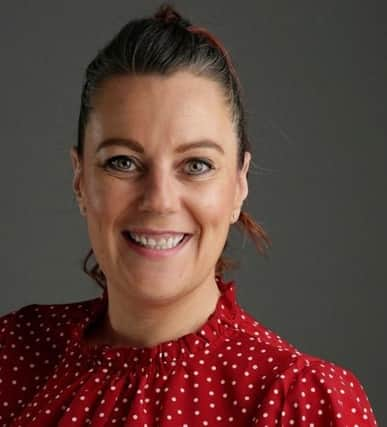Action needed to ensure children’s mental ill health is not our next pandemic - Julie O'Donnell


Covid-19 has allowed the world to stop, take notice and listen; and this can surely only be a good thing. We have seen an increased awareness on our environment, the planet and things we once classed as essential. The flip side to this is that those who already live in isolation, with poor mental health, in poverty or faced pre-existing daily changes, have seen their needs become compounded.
There has been widely reported coverage of communities coming together, the NHS and Care staff being applauded and frontline workers receiving praise and recognition; all of which are to be commended but what are we not seeing?
Advertisement
Hide AdAdvertisement
Hide AdFrom LOVE Learning, an organisation with a wealth of experience and knowledge in supporting vulnerable children and adults, we have seen a sharp rise in the demand for our services. In the fight against the pandemic, we seem to have forgotten about those who were already in need, for whom most of the support they would have received before, was banished due to Covid-19.
Although we have been able to meet the rising demand of our services by continuing to actively recruit, train and develop our staff, we have seen the sharpest increase in demand for our 24 hour Intensive Support Monitoring Services (ISMS), which aim to provide a much-needed lifeline to those in a situation of crisis during these challenging times. This is a direct consequence of NHS Child and Adolescent Mental Health Services (CAMHS), which provide much needed support to young people in our country, being at a breaking point.
Statistics published prior to Covid-19 already showed that almost every NHS board in Scotland had repeatedly failed to meet their CAMHS waiting times targets, which sitting at 18 weeks were already too long. These statistics will only worsen given that drop in referrals recorded during the lockdown months.
Part of our mission within the Scottish Children’s Services Coalition has been to raise awareness of children’s mental health and the need for specialist services by calling for true transformation within our mental health support system.
So, what do we propose?
We believe that whilst there must be greater injection of funding and resources to provide these services, a new collaborative approach in their delivery is urgently needed.
There are a range of organisations, like ours, who are already delivering mental health support services by engaging with local authorities, schools, GPs, and young people themselves. We and organisations alike are in a key position to provide on the ground services.
In fact, we are already doing it. By funding other organisations and creating a collaborative approach to delivery between the NHS and private and third sector organisations, we could work together in reducing waiting times and easing the pressure on CAMHS, allowing it to focus on specialist clinical interventions.
Change is needed and it is needed now to ensure children’s mental ill health is not our next pandemic.
Julie O’Donnell, Operations Director of LOVE Learning, member of the Scottish Children’s Services Coalition.
Comments
Want to join the conversation? Please or to comment on this article.